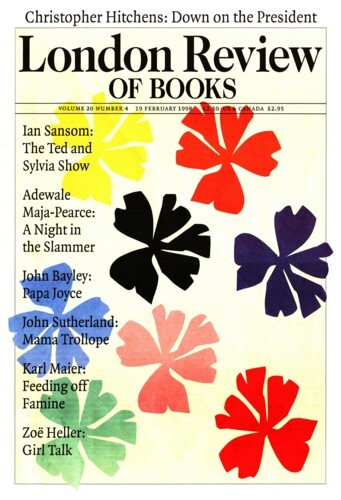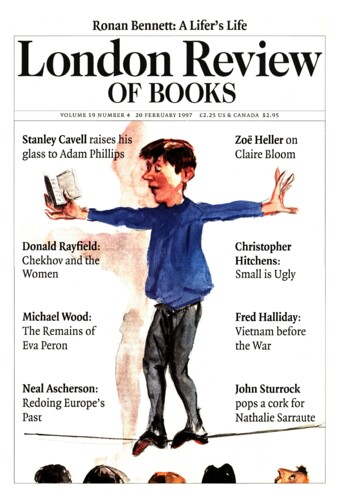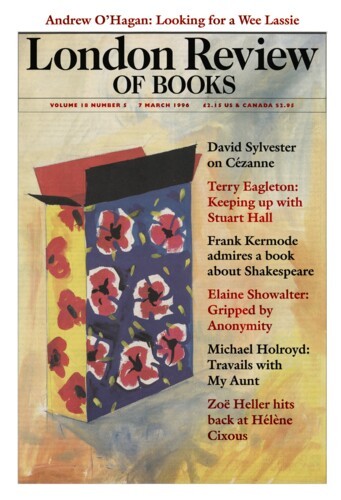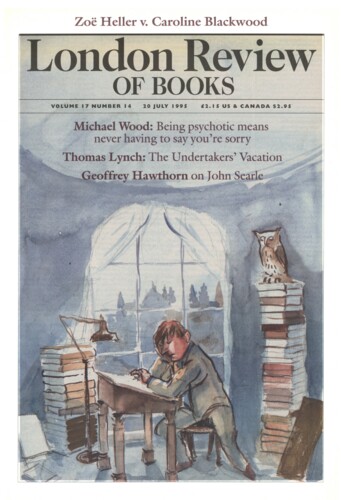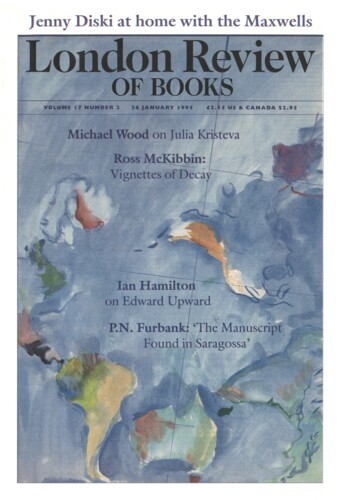Dumped: Girl Talk
Zoë Heller, 19 February 1998
Not long ago, James Wolcott wrote an article for the New Yorker lamenting the ‘softened, juvenilised’, timbre of modern female journalism. In the old days, he said, women like Germaine Greer and Valerie Solanas made men nervous. They produced feisty, aggressive prose. They were rude and polemical. They wrote, in Norman Mailer’s words, like ‘very tough faggots’. But somewhere in the aftermath of Seventies feminism, women’s writing lost its swagger: the cut and thrust of the Valkyrie was replaced by the flounce and preen of the ‘chick’. The pre-eminent female style, Wolcott claimed, has degenerated into a sort of grimly coquettish prattle – ‘flirty and confrontational at the same time’.’‘
